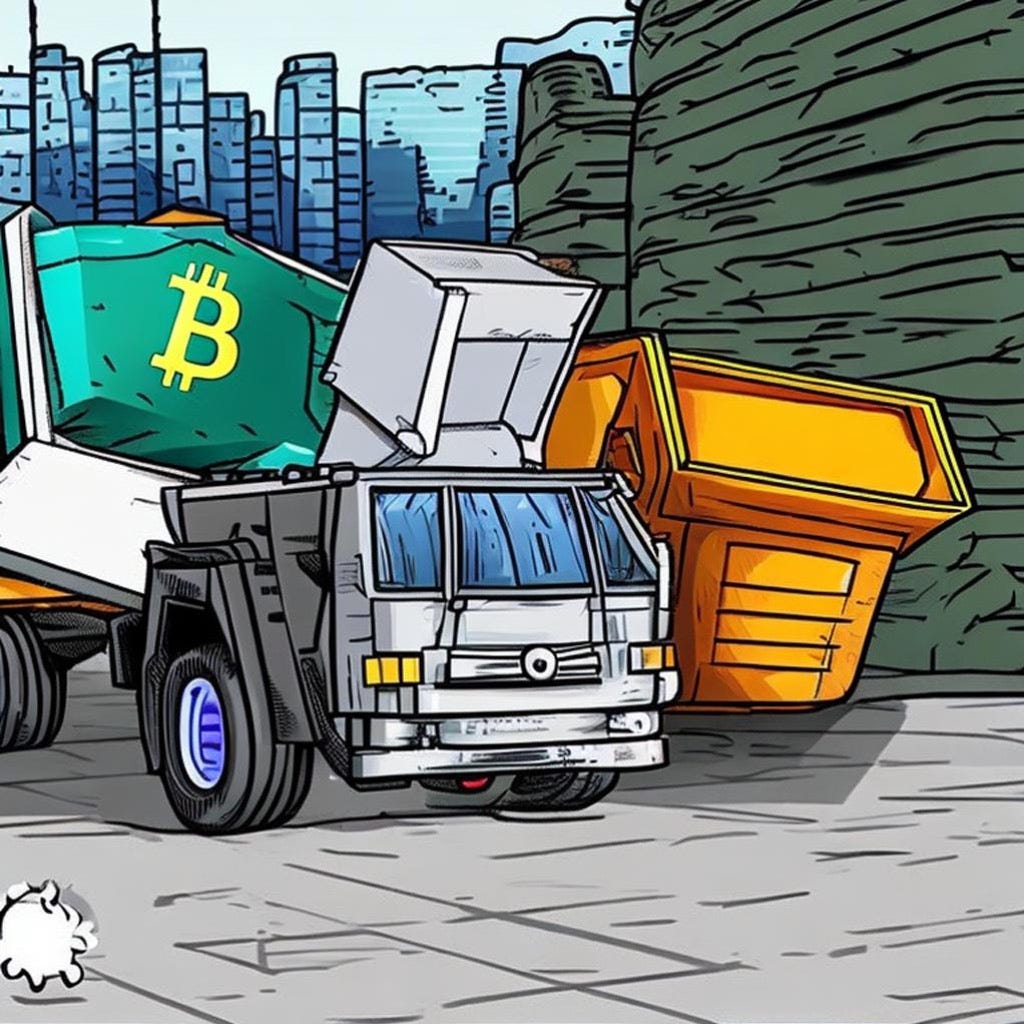Turning Trash into Treasure: Bitcoin Mining Powered by Recycled Waste

Bitcoin consumption has been a subject of debate among tech enthusiasts, investors, and environmentalists. The energy consumption required to mine Bitcoin is considerable, and it is only going to increase in the future. However, what if there was a way to do this in an eco-friendly manner? That's what we are exploring today. In this blog, we will discuss the concept of using trash and recycled waste for Bitcoin mining and how it is becoming a reality rather than a mere idea.
Bitcoin mining is a resource-intensive process that involves solving mathematical puzzles to verify transactions and add blocks to the blockchain. These computations require enormous amounts of energy, which has become a point of concern for environmentalists. Fortunately, several companies have started exploring alternatives to traditional energy sources to power their mining facilities. One innovative approach gaining traction is to use waste, such as landfill gas and recycled waste, as a source of energy for mining operations.
The idea of using waste as a source of energy is not entirely new, but its application to Bitcoin mining is quite recent. Landfills, for instance, contain a significant amount of organic material that decomposes over time and produces gas. This gas can be captured and used as an energy source in power plants, which can then generate electricity to power Bitcoin mining facilities. This approach provides a win-win situation: it reduces waste and greenhouse gas emissions while also powering Bitcoin mining.
Another waste-to-energy approach is to convert recycled waste into energy using a process known as waste-to-energy (WTE). In this process, municipal solid waste is burned to generate electricity. The process is not only eco-friendly but also cost-effective since mining operations can obtain energy at a lower cost than they would using traditional energy sources.
Some companies have already implemented these practices. For instance, EZ Blockchain, a Chicago-based mining company, uses flare gas from oil wells to generate electricity for its Bitcoin mining operations. The company provides a solution to oil drillers who would otherwise flare or burn the gas emitted in oil drilling practice, which is a significant contributor to greenhouse gas emissions.
Bitcoin mining and environmental concerns have been a contested topic. Still, the use of waste as an alternative energy source for mining operations provides a solution that is both eco-friendly and cost-effective. It's a way to kill two birds with one stone, reducing waste and greenhouse gas emissions while also powering the mining industry. Although still in its early stages, this technology could have a significant impact if implemented at scale. In the long run, as more mining companies adopt this approach, we may see a significant shift towards more sustainable and eco-friendly practices in the cryptocurrency industry.
